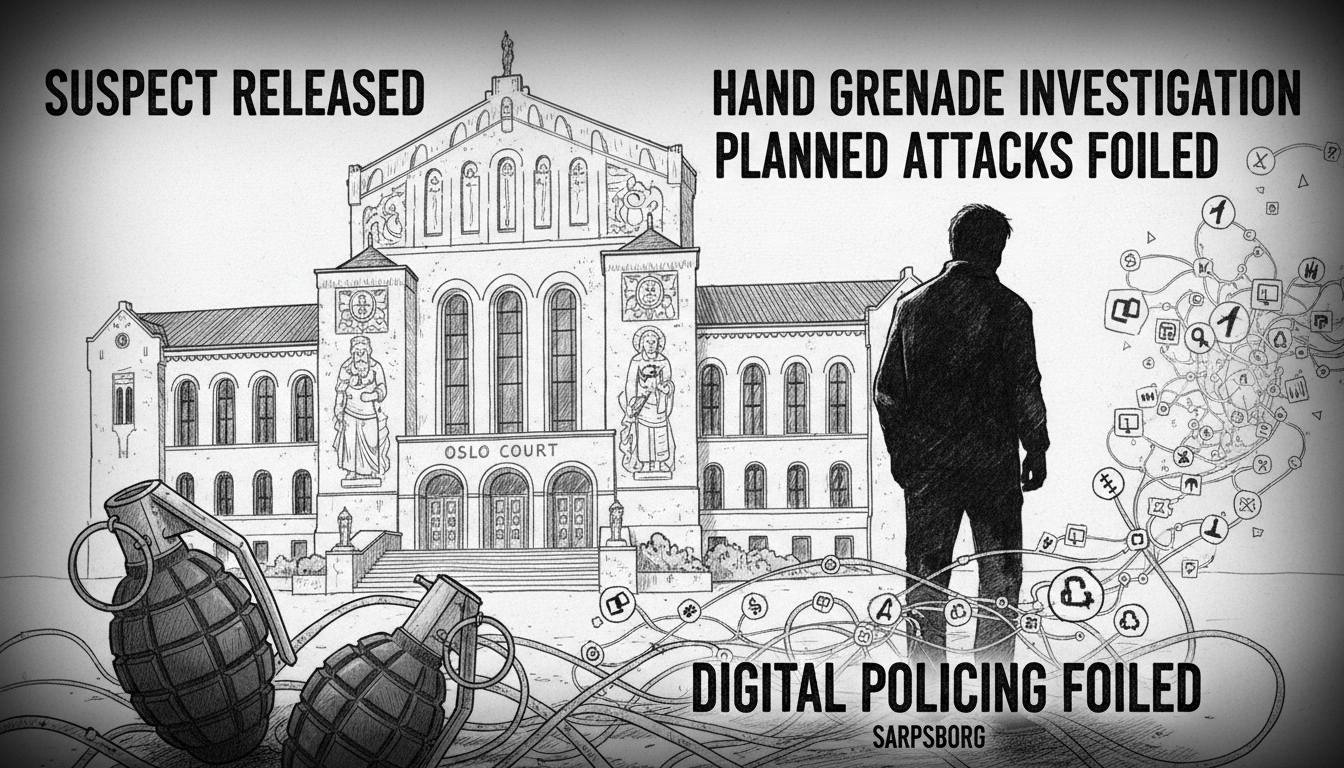Norwegian authorities released a suspect from custody in a high-profile hand grenade case. The man had been detained since early October following a police operation that prevented weapons from reaching their intended target. His defense attorney stated the release was expected given reduced concerns about evidence tampering. The investigation continues with charges maintained against the suspect.
Police infiltrated digital communities to intercept the weapons transfer. Undercover officers posed as violent actors online to identify potential threats. This operation led to the seizure of two hand grenades at Ikea Furuset in Oslo during the Third Quarter. Authorities believe the weapons were destined for an attack on a commercial building in Sarpsborg.
The case highlights Norway's evolving security challenges. Digital policing methods are becoming increasingly important for preventing violent crimes. This incident represents one of several recent cases where authorities have intercepted weapons through online surveillance.
Norway's legal system allows for pretrial detention when evidence tampering risks exist. The court determined those risks had diminished over time. The suspect maintains his innocence according to his legal representation. Police officials confirm the investigation remains active with multiple individuals under scrutiny.
A second suspect allegedly acted as an intermediary in the weapons transfer. This 31-year-old man reportedly delivered the grenades to an undercover police officer. He also denies criminal wrongdoing through his legal counsel. The case demonstrates coordinated efforts between digital and physical police units.
Norwegian counterterrorism strategies have expanded to include online spaces. Police now monitor various digital platforms where criminal activities may be planned. This approach has proven effective in several recent operations across different Norwegian cities.
The hand grenade case raises questions about weapons availability in Norway. Authorities continue investigating how such military-grade equipment enters civilian spaces. Similar incidents have occurred in other Nordic countries, suggesting regional security concerns.
Oslo's judicial calendar indicated a custody hearing was scheduled before the release decision. The court ultimately determined continued detention was unnecessary. Norwegian law requires regular review of pretrial detention conditions. This ensures individual rights are balanced against public safety concerns.
What does this case reveal about modern policing challenges? Law enforcement must now operate across both physical and digital environments. The integration of these approaches represents a significant shift in crime prevention methodology. Norway's legal framework continues adapting to these new realities.

